Zach Willmore Brings HIV Awareness to TikTok
TikTok creator and fashion influencer Zach Willmore raises his voice as an advocate for young people living with HIV

The stage was set inside Room 13b at the Messe München convention hall. The moderator was ready, and the panelists were seated. But someone was missing, as the audience, here in Munich on day three of the annual International AIDS Conference, prepared to hear a lively symposium on Inter-generational Dialogues and Fostering Mutual Learning and Collaboration.
After a brief delay, the event moderator, a 21-year-old queer trans social worker, decided to go ahead and kick off the discussion, inviting different generations of HIV/AIDS activists and advocates to share a transition of knowledge and techniques.
One of the panelists, who had been in the trenches of the AIDS crisis since the beginning, jokingly established himself and his peer on the panel as the Jurassic generation. The joke was just gaining traction when, suddenly, the click of high heels drawing closer left everyone momentarily speechless.
The doors to the room swung open, and, as if swept along by a fairytale breeze, the one we’d been missing, Zachary Willmore, hurried inside.
In full princess glam, wearing a corseted, peekaboo ball gown, resplendent in ribbons and rose print, and topped by a rhinestone tiara and pearls, Willmore looked every inch the belle of the ball.
Arriving fashionably late, he still made the perfect entrance.
Later, he told me what had kept him. “I was at the main stage and I was like, ‘Oh, I’m so early, I’m so excited,'” he explained. “And then it got to 4:30. I was like, ‘Oh, I might actually be at the wrong stage.'” I let him know that I’d done the same at least twice at this conference.
The youth ambassador — known for creating waves with his ornate style, viral TikTok videos (and 2.2 million followers), and for being crowned Missouri’s first male Homecoming Queen when he was a senior at Rock Bridge High — has over the past two years expanded his platform to advocating for greater awareness and education around HIV/AIDS.
Willmore was diagnosed with HIV in February of 2023, at 19, and has since chronicled his health and progress on TikTok, along with the full, fabulous life he’s able to lead thanks to treatment. Currently a student at San Diego State University, he’s educated himself about the virus, and he sounded poised and prepared on this panel.
“A lot of times, just because of our youth, people don’t think we have the experience or the knowledge capable of making a difference in the world,” he said, by way of introduction. “But I think that the youth play such a large role in where this planet and where we are going as a society.”
And being underestimated due to his age only propels him forward, he declared. “It’s been a little bit of a motivator for me, because I want to show people so badly that I am capable of making a difference.”
A couple of days earlier at the conference, Willmore, garbed in queenly, if slightly less extravagant, regalia, spoke at the opening of the AIDS 2024 Global Village, a sprawling indoor exposition of science, advocacy, and community organizations.
Recounting his life story from the Global Village stage, he channeled the fire of resistance he’s shown since first surprising the nation by becoming Homecoming Queen. “I feel like it’s so important to challenge gender norms, especially in this day and age,” Willmore told the cheering crowd. “The floor-length gown and pearls were just because I’m a diva.”

He also detailed his experience living with HIV, recalling, “When I got the diagnosis, I felt like my world was shattering around me. I truly felt disgusted with myself knowing that I had a virus that would stick with me for the rest of my life.”
Willmore started documenting his journey via a diary as a way to process his emotions. “But about a week later, I decided to share it with the world,” he said. “Without the support system that I had at home, I fear where I might have ended up. So I decided to start posting to help other people who might not have that same type of support at home.”
Feeling supported, and with access to good treatment, Willmore soon found that, “the hardest part about living with HIV was the stigma that surrounds it. There are people who still think that HIV is a death sentence because of how little education there is provided about it.”
Providing that education, and partaking in it, is why Willmore was here on this panel. “People are embarrassed about living with HIV, because there is so much misinformation,” he said, as the symposium came to a close.
“That is why I made it my mission to show people that life can flourish after a diagnosis. I wanted to be a voice for my generation, telling people that even when we are feeling gross or untouchable, that we are still deserving of love and a normal life.”
Normal life for Zach Willmore these days means that, after the intergenerational dialogue had ended, and the audience had departed for other sessions, he held back a moment, remaining onstage alone. Taking out his phone, he stood behind the podium, lined up a shot, then handed off the phone to a woman working the event, politely asking her to shoot the video.
Of course, it finally occurred to me, as Willmore posed powerfully behind the podium: Creators create. He asked his impromptu cinematographer if she’d like him to tag her on the video, to which she sheepishly responded that she’s not on TikTok. He sighed sympathetically.
“I’d have been off social media so long ago if it weren’t my job,” he told her. “It’s not good for the mental health.”

METRO WEEKLY: I watched some of your videos, so I am going to say, those are the pearls that your mother gave you?
ZACH WILLMORE: Yes, they were her wedding pearls.
MW: Wow. Those are nice.
WILLMORE: I know. I feel bad. I’ve stolen all of her jewelry.
MW: When did you first start stealing her jewelry and/or clothes?
WILLMORE: Probably in middle school, honestly. I always would take her bracelets or stuff I really wanted. She had this one tennis bracelet, which she never wears, and I’m like, “What’s the point of owning diamonds if they’re just sitting in a box,” but I am never going to get that.
MW: Oh, so you haven’t even worn that one?
WILLMORE: No, but it’s okay. I got the pearls.
MW: I watched the video of the day that you found out you were undetectable, which was great. It was so joyful. Also, you mentioned in that video, “Even if this gets zero views” — why would you have thought that that would get zero views?
WILLMORE: I don’t know, because the way that I did it was very not professional, to be completely honest. It was a walking video, which really doesn’t do as well because there isn’t as good of lighting, and there’s a little bit of background noise.
So I feel like, a lot of times, the influencers that do really well, they have confetti, they have great lighting. It’s very professionally done, so I just didn’t assume that people would care about it that much.
MW: But they do.
WILLMORE: Yes.
MW: What has it meant to you that people aren’t just watching but they care?
WILLMORE: It was really touching, honestly. I think that up until that point, I thought that people were just watching because they were interested. Like, “Oh, it’s the next big thing. It’s a little drama.” But that video really kind of cemented that people are happy that I’m getting better. People are happy that I’m living a nice life, which is really nice.
MW: I feel like you could be enjoying Hot Girl Summer any place. Why did you want to be here at the International AIDS Conference?
WILLMORE: Oh, my gosh. It was a no-brainer for me. I got the invitation from my manager and I immediately started planning my outfits. First of all, I’ve never been to Germany, so that’s amazing. But I also knew that it would be an experience that no amount of money could buy, just being surrounded by so many like-minded people, but also educated and smart people. I don’t think I’ve ever been to an event — I know I haven’t — where people were all educated and smart sounding, even the people asking the questions.
I’m very used to the U.S. kind of culture where you go to things and everything’s a joke. I feel like a lot of times there’ll be serious conferences and people ask questions as a joke either to try to get them off guard, or just to be funny and get a laugh. And I haven’t seen any of that here, which, I feel like it’s an obvious thing to say that, but it’s just not, from where I’m from, especially Midwest, if it was something like anything sexually related.
MW: Well, I don’t take it for granted that even at a place like this, which is full of scientists and everything, that everybody’s taking it seriously and seems really sincere about caring and ending it. Although I also think, what will they all be doing when there’s no more HIV? I mean, we all want that, but I don’t know what everybody’s going to do when there isn’t that.
WILLMORE: I’m glad that you say when there isn’t.
MW: I am encouraged. I mean, the big story that I was coming here to check out was the different cured patients, because there are now seven, and three of them were here telling their stories. And what I’ve learned is how rare it is, that outcome, and that it’s not going to be for everybody because these were people who were dying of other illnesses, and they had to have stem cell transplants. What have you learned about cures, or what are your thoughts on even the concept of a cure and what that would mean for people with HIV?
WILLMORE: Oh, it would be the world. It would be so amazing. I did a lot of research when I first got diagnosed, and finding out there are people who were cured was just, it was so empowering, and it gave me a lot of hope for my future.
I did try to apply for a bone marrow transplant, and I had to be told by three different doctors that it was impossible because of how risky it is. I’m pretty sure that with a bone marrow transplant, a lot of the times it comes with chemotherapy, and it’s very risky because it basically gets all the white blood cells out, and also it’s not a hundred percent reliable because even if there’s one or two that are still in your body, then they can multiply and it can come back.
So it’s a lot of high risk for something. It is amazing that it’s happening, but it might be a while until the everyday person could get access to something like that.

MW: One of the things that one of the cured patients, Marc Franke, who is the Düsseldorf patient, had to say in two of his panels is that people ask him, “Is he worried about his cancer or his HIV coming back?” And he said, he’s not worried about HIV coming back because he can live with HIV — cancer he can’t. But he said another difference is that once he had cancer, it was a relief because he could talk about it, because everybody’s like, “Oh, you brave thing.” And it’s not the same with HIV, which is that stigma. What are your thoughts about how it’s been to share it with people?
WILLMORE: For me, it was nice. The first couple of videos, I’m not going to lie, it was a really harsh comment section. I would read the comments and they would be, “Play stupid games, win stupid prizes,” stuff like that. “It was so shocking that you got it.” A lot of slut-shaming like that.
But the more I posted about it, the easier it got, and eventually I went back to the first video that was so hateful and the comments basically got turned around because of how much support I was getting. So I appreciate that. I can understand why so many people don’t come out about their stories, though, because it’s so easy to get on the wrong side of TikTok, especially. I feel like my story could have been different even if I didn’t have a previous platform and people didn’t know who I was previously, because if that was the first thing people knew about me, it can be so much easier to make snap judgments.
MW: And you already had a following from your first burst of fame, being Homecoming Queen. What year was that?
WILLMORE: That was in 2021.
MW: What did you wear?
WILLMORE: Oh, I wore a fully sequined, gold gown. I was very upset to give it to the museum, but it’s —
MW: What museum?
WILLMORE: Oh, it’s in the Show-Me Queens exhibit, in the Mizzou textiles collection [the Missouri Historic Costume and Textile Collection, at the University of Missouri]. So it’s super nice that it’s kind of having a second life right now. That is the best that a dress has ever fit me.
MW: Obviously, people were telling you not to do that, or that that’s not behavior that should be modeled or whatever. What gives you the strength to say “Fuck it”?
WILLMORE: Well, first of all, there is no story without a tiny bit of controversy. So seeing that there was controversy, I wasn’t really surprised or offended about it. I kind of do my thing no matter what. I had a good reason for it.
The word queen used to be used as derogatory towards the gay community, so it was partly reclaiming it, but also I low-key did make an Instagram poll and everyone was like, “Oh, put Queen on the sash, it’ll look so much better.” I was surprised that it got the attention that it did, after that. I don’t know, I just didn’t think it was a big deal. But in the moment, I was like, “Oh, it’ll be something fun that I do.” I wasn’t thinking that it was going to get the amount of attention that it did.
MW: Because it’s just clothes, right?
WILLMORE: Right, right. I don’t know. I feel like in my mind, a lot of stuff is so much less of a big deal than in everyone else’s mind.
MW: Well, also, disclosing your diagnosis is a big deal. Was there anybody advising you not to do that, and obviously you did, and how did that go?
WILLMORE: Yeah, a lot of people did, in a very kind way. Even my parents were like, “Are you really sure you want to do this, because you can’t take it back once you put it out there.” And I know that some people do, but especially on the internet, it’s really hard. So they were like, “You have to make sure that this is really what you want to do.” Because I was kind of ready to post after three or four days, and they advised me to wait until I was at least on medication. So I would have something to tell people when they did ask about it, like, “Oh, are you doing okay?” Then I could at least be like, “Yeah, I’m on medication.”

MW: Did you have any issues with access to treatment?
WILLMORE: No. I was put on treatment pretty much right away. I had a little fund — I’m pretty sure that you can sign up for some things that give you a fund for a certain amount of money to go towards your medication — and it ran out. And even with two forms of insurance, it was still $300 a month after that, which is so insane to me, that it’s a life-saving medication. I feel like insurance should have to pay for that completely.
It’s all about money. Same with diabetic medication, it’s just they know that people have to have it. I think it’s stupid, especially. I posted about how expensive it was for me, and first of all, I am going to get on the Ryan White Foundation, so it probably won’t be that expensive for me in the future, but people in Morocco and second or Third World countries were like, “Oh, it’s completely free for me.” That’s crazy that the U.S. is charging that much, because if I didn’t have any insurance it would be $3,000 a month.
MW: A big issue at this conference is that Gilead is coming out with lenacapavir, the new, twice-a-year injectable, but in the States it will cost 40 grand.
WILLMORE: Wow. Oh my God.
MW: Yes. Which makes it inaccessible to–
WILLMORE: Everyone.
MW: …to just about everyone.
WILLMORE: Is Gilead at this?
MW: Yeah, Gilead’s here. ViiV Healthcare is here. They’re sponsoring a bunch of things. They have huge teams of people, medical directors, marketing directors, find somebody, they’ll want to listen to you, and tell them everything you can.
WILLMORE: I will. It’s so disgusting, honestly, that corporations are able to profit off of people who really cannot help the situation that they’re in.
MW: Absolutely, or they’ll die.
WILLMORE: Yeah. Or they’ll die.
MW: As far as the intergenerational discussion goes, I thought it was very cool that you brought up that it can go both ways, that sometimes older gays are not really listening. Sometimes younger gays are sort of suspicious or walling themselves off.
Do you find in general, especially now that you’re in these spaces, that people who are older are really listening?
WILLMORE: I think so. At this convention, definitely. There are a lot of older people listening. I guess when you go into the general public, it’s a little bit less common. I don’t know. It’s less common to have those conversations in the first place, but it’s also less common that you’ll be taken seriously both ways, I think. Because I know, even for me, honestly, I feel bad saying this, but for a while, I was like, “Oh, the older generation of gays just wants to get with me.” Because the only experience I had with them was really at the clubs, when I would sneak into the clubs and then, yeah.
MW: Were you going out in St. Louis, or should you not say?
WILLMORE: I can say I’ll reveal that in a month when I turn 21.
MW: Oh, yeah. You can’t get anybody in trouble. So about the TikTok videos, let’s talk more about that. I just saw you shoot one, and you talked about shooting the undetectable video as a walking video. In general, do you plot everything out or do you like to be spontaneous? What’s your general MO?
WILLMORE: I map some of them out, but the majority of them are honestly spontaneous. There was one that I recently did about being in a relationship with someone who’s HIV negative while I’m HIV positive, and I plotted that one out, but I really don’t [with] the videos. I noticed that they won’t do well unless my heart is fully in it. So I usually honestly wait until I’m feeling motivational.
MW: How do you think you’ve gotten better at it since you started?
WILLMORE: I’m more conscious. So when I’m on TikTok, instead of just scrolling for fun, I’ll look at and I’ll be in the back of my mind like, “Oh, can I do this video? Can I do a version of this? What are people talking about?” So I’m just more conscious about what people are talking about now.
MW: And I guess as it relates to reaching older people, what do you think? Personally, I’m not on TikTok. A lot of older people aren’t on TikTok. So, as somebody who is an influencer on that platform, is there any reason for older people to be there?
WILLMORE: I think so. I think that it’s important. Maybe the older generations aren’t on it, or making videos on it at least, because they don’t think that people are going to listen. But I know a lot of older creators who are doing really well, because it’s a misconception that the younger generation doesn’t want to hear from them. So I think that it’s important. I do hope that more older people get on TikTok or platforms like that, and start sharing their experiences just because it is important to hear from everyone.

MW: I’m really curious about your style philosophy. Did you grow up with any style icons? Who influenced you?
WILLMORE: So it’s been different people throughout my entire life. During quarantine, Noen Eubanks — I totally mispronounced his name — but I really wanted to be like goth, emo, e-girl type of thing back in the day.
MW: So you were dying your hair a different color?
WILLMORE: No, I’ve always been platinum blonde, but I would do the eyeliner, the cherry earrings, the neons. I’ve always loved Lady Gaga, out-there style. I’m a very maximalist person, so I am really not vibing with the Hailey Bieber aesthetic, where it’s just very monochrome, stuff like that. I think that there’s so much more to life than beige. I think that color is such an important aspect of my life. So yeah, I like anything with color or lots of designs. Like my outfit today I feel like is very me.
MW: Who designed this?
WILLMORE: Maimi Sadai. Boots are House of Elliot. And then the crown is Haus of Junon.
MW: Do you design?
WILLMORE: No.
MW: Are you interested in fashion design?
WILLMORE: I am. I really want to. I almost went to fashion school, but it’s super expensive. It’s like $70,000.
MW: Now, I guess you told me a little bit about your method of dealing with haters, which is to sort of move past it. Have you had to be proactive about dealing with anybody in particular?
WILLMORE: Yeah. Honestly, this is terrible, but I am okay with a little bit of hate as long as I get a check. That’s why it’s really easy for it to roll off my back when someone calls me a fag or anything, because I’ll whip out my camera. I’m like, “Well, guess what? This slur came with a $200 check.”
So my way of thinking about it, it may not be the best. Obviously, it does make me sad that that stuff happens to me, but I always try to look for a silver lining or just, I kind of understand that those people who are calling me that, or who are not okay with the way that I live and my lifestyle, are probably not happy with their own. And also, it’s really, a lot of times, not their fault, because maybe it was the environment that they grew up in that was so against being gay or so against femininity that has kind of shaped them into the person that they are, spewing hate.
MW: That’s a very mature perspective. How’d you get there?
WILLMORE: A lot of reflection. I always like to reflect over myself and who I want to be. I think it’s so important to always look towards bettering yourself. So I kind of just realized that it doesn’t do me any good to dwell, or provide hate in response. It’s so much better for me, at least, and my mental health to move past it maturely.
MW: Yeah, for all of us, that’s the better thing. What are you studying at San Diego State?
WILLMORE: I’m a business major, so I do marketing. I figured I market myself every day.
MW: I saw that you were pledging a fraternity. What was attractive to you about frat life?
WILLMORE: Frat life, honestly, the parties. I knew that it was a very frat-centric school, but also I wanted to feel a part of it. I didn’t want to feel like since I’m a feminine gay guy, I can’t rush. Obviously, I would’ve loved to rush a sorority so much more, but I wasn’t just going to stop and hide in the corner, or not do something that I wanted to just because it wasn’t the norm. And it was really fun for me. I have a lot of friends from that. A lot of gays are in frats, surprisingly.
MW: Not surprising.
WILLMORE: But, I was like, it was fun for me. The activities that they had you do while rushing, like riding a mechanical bull or dodgeball, it was fun. I think more gays should do it.
MW: Actually, I should say, I would maybe be surprised if they’re out. So you’re saying out gays in frats?
WILLMORE: Some. It was funny when I was rushing, each frat would be like, “Oh, come over. Look at how diverse we are,” and they would show me to the one single gay guy in their frat, and they’d be like, “Yeah, we love gays.” And it’d be the one guy, who’s never at the party and does not like the frat life.
MW: But you’re not that guy.
WILLMORE: No.
MW: So where do you see yourself in 10 years?
WILLMORE: Hopefully famous.
MW: I think you’re already famous.
WILLMORE: Thanks. That’s sweet. I also want to be, maybe not in 10 years, but I want to be married, little white picket fence lifestyle with some kids and a nice husband. I want to have a successful career. Hopefully, I want to start a men’s lingerie brand. Because it’s so important for me to help feminine guys feel pretty about themselves.
There’s kind of a stereotype for feminine gay men that they’re like Regina George wannabes. I’ve seen that conversation on TikTok, and I think that a large part of it is that they respond to hate with defensiveness. So they put on an act because they don’t feel pretty about themselves, because of how other people have made them feel. So I hope that I can change that. Not just with my words, but also maybe create a line that helps them feel good about themselves, helps them feel sexy.
Zach Willmore can be found on TikTok at @zachwillmore.
Support Metro Weekly’s Journalism
These are challenging times for news organizations. And yet it’s crucial we stay active and provide vital resources and information to both our local readers and the world. So won’t you please take a moment and consider supporting Metro Weekly with a membership? For as little as $5 a month, you can help ensure Metro Weekly magazine and MetroWeekly.com remain free, viable resources as we provide the best, most diverse, culturally-resonant LGBTQ coverage in both the D.C. region and around the world. Memberships come with exclusive perks and discounts, your own personal digital delivery of each week’s magazine (and an archive), access to our Member's Lounge when it launches this fall, and exclusive members-only items like Metro Weekly Membership Mugs and Tote Bags! Check out all our membership levels here and please join us today!








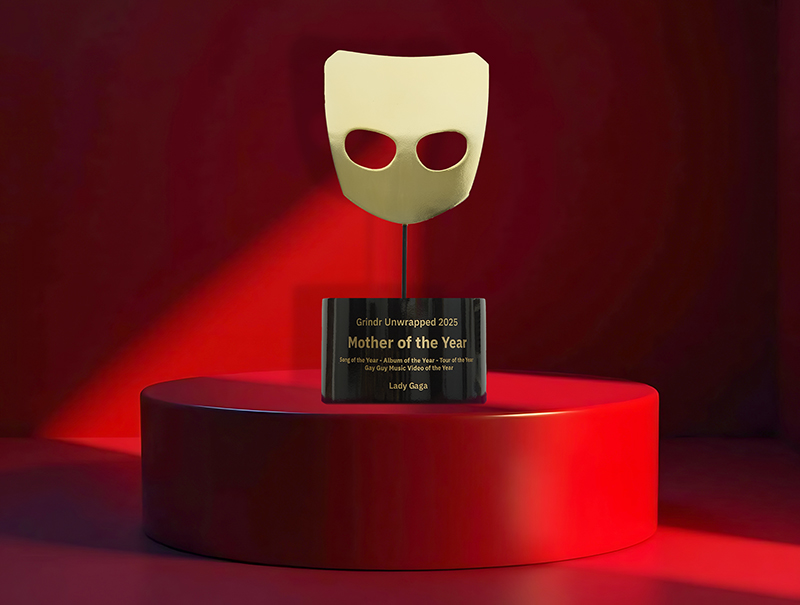
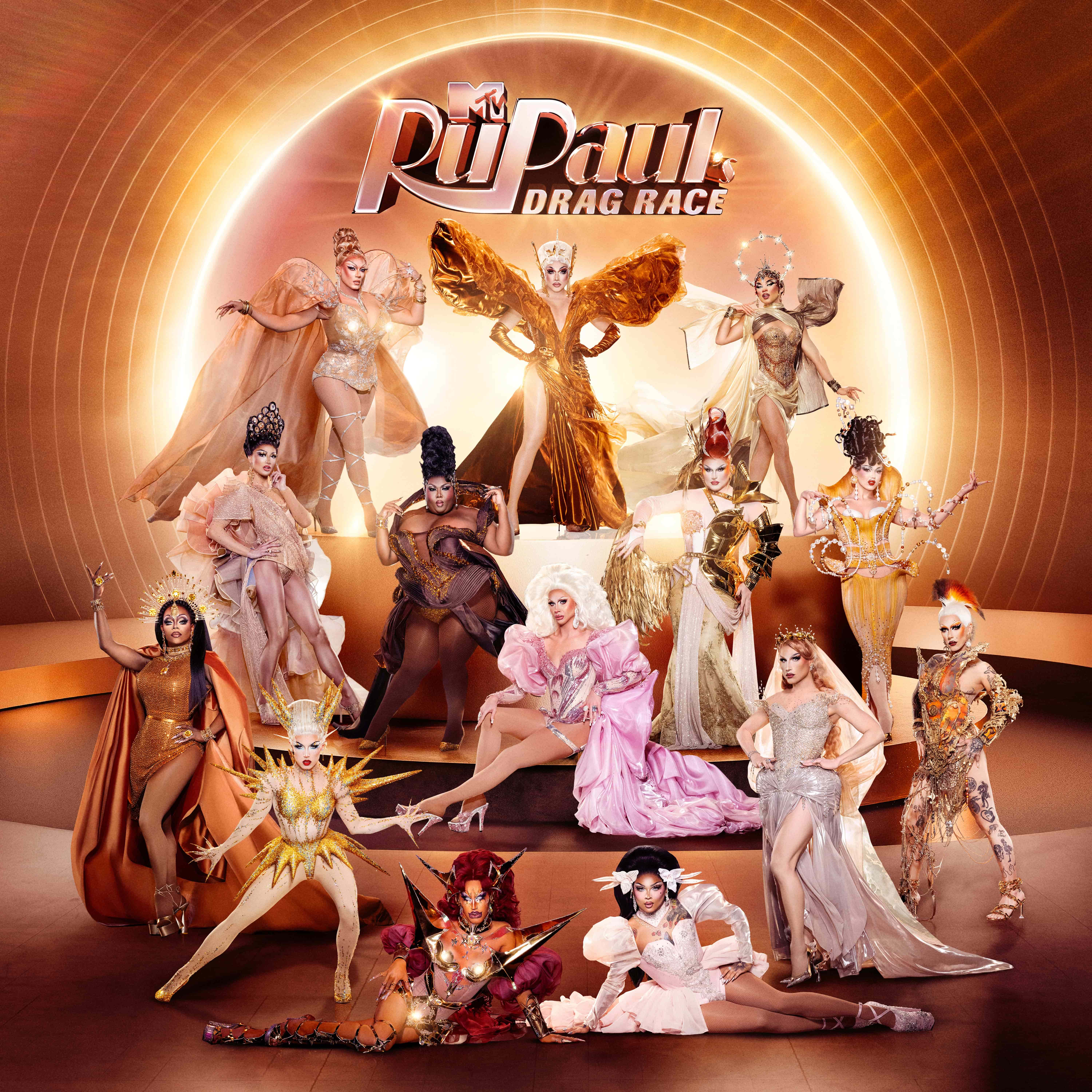













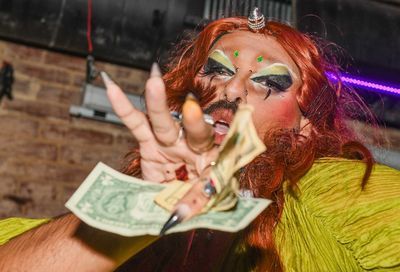
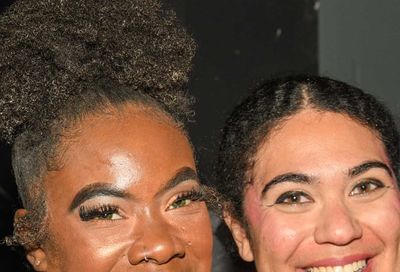
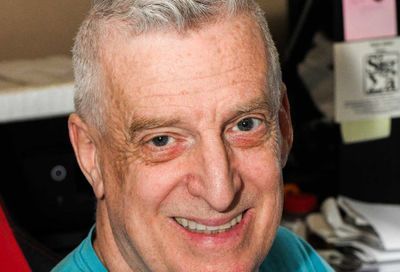
You must be logged in to post a comment.